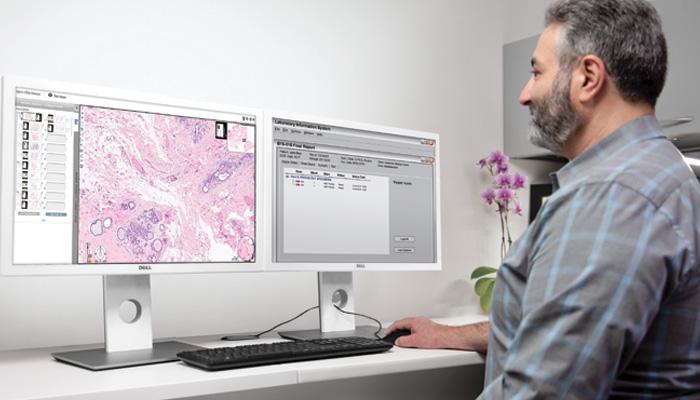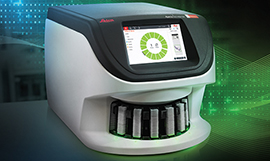Confidence in Diagnosis for the Pathologist
The Aperio GT 450 DX starts with quality and stays with quality. High quality digital scans deserve an image management system that detects, stores and delivers whole slide images and metadata exactly where and when needed for confidence in diagnosis.
Aperio GT 450 DX Scanner
- Designed to rapidly deliver images with exceptional quality for Pathologists.**
- High performance objective manufactured by Leica Microsystems, renowned for producing world-class optics since 1849.
- Leica optics deliver exceptional image quality
- Every slide is calibrated during scanning to ensure the best quality image
- Automated image quality assessment, so you don’t have to send slides back for re-scans
- 99.5% accurate tissue finder (H&E stains) finds faint tissue while excluding pen marks, dust, and residue.
Aperio WebViewer DX with eSlide Manager and LIS Connectivity
- Compare current case with past patient cases to provide needed context, with the ability to synchronize image magnification and rotation of multiple images within the same window
- Corroborate your diagnosis with colleagues and consulting sub-specialists using advanced communication features
- Streamline slide navigation for professional quality presentations using handy Pin Drops
- LIS Integration
- Image Enhancement
- Macro View to detect missing tissue
- Multi-level sort for slide tray images
- Measurements in microns/mm
**See Resources > DICOM for more info on How it Works with the Aperio GT 450 DX




